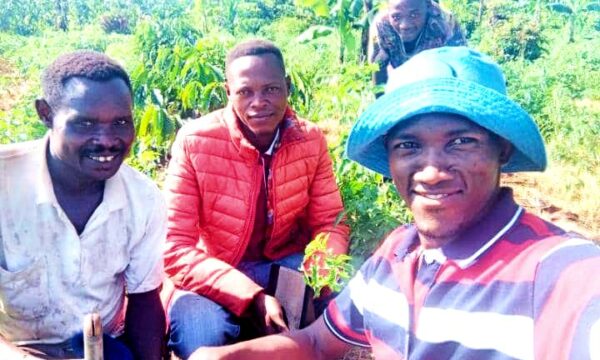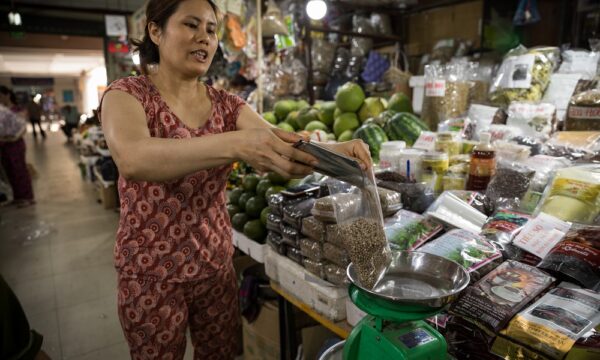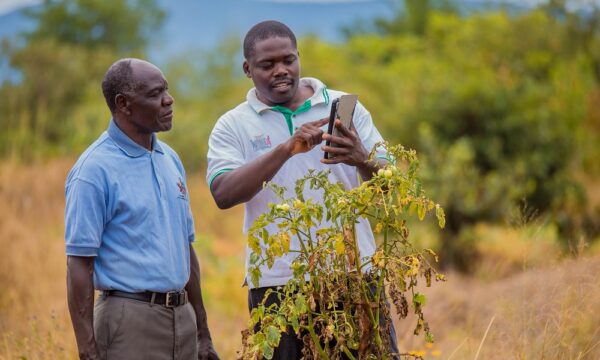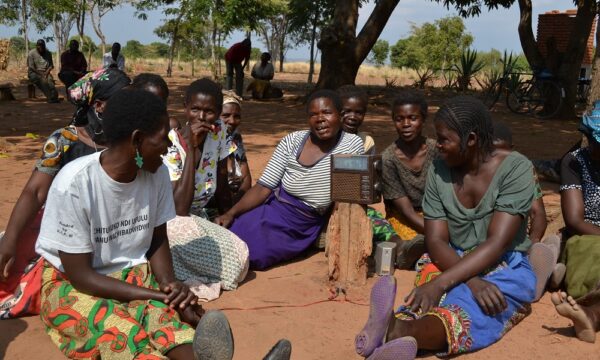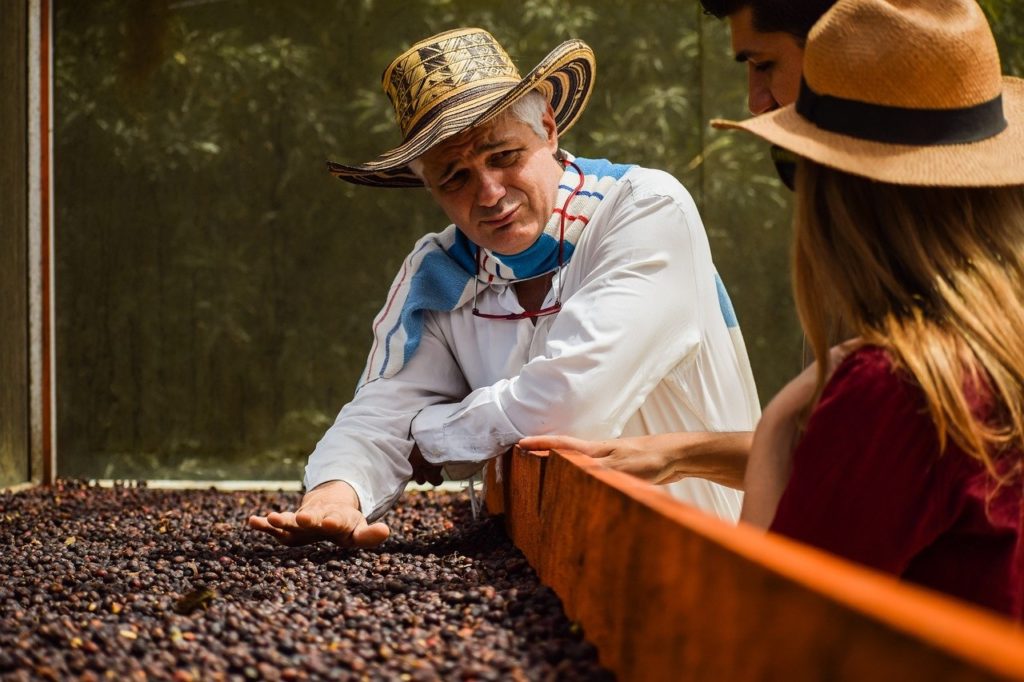
Coffee – the valued crop and source of livelihood for millions – is celebrated annually to promote the efforts of all involved in its production. From farmer to manufacturer, barista and consumer. Now in its sixth year, International Coffee Day 2020 comes at a time in history when the Covid-19 pandemic presents a unique challenge to the world including the global coffee industry. With that in mind, this year’s focus is on supporting the next generation of coffee producers – young people, entrepreneurs – people who the future of coffee depends on.
The effects of the global pandemic are not the only threats to coffee; existing price challenges faced by coffee farmers and the impacts of climate change, pests and diseases of coffee are major reasons for low productivity and low income amongst smallholder farmers who produce coffee beans. These pose a big threat to the future of coffee because rises in temperature could mean that coffee can longer be grown in areas where it did before; which means that farmers will have to diversify their crops, coffee produced may not meet demand, and this will further push up prices.
Globally, coffee is produced by over 50 countries and is one of the largest traded commodities in the world. Coffee production was estimated at 169.34 million bags in 2019/20 and consumption of coffee was estimated at 168,492 in thousand 60-kg bags in 2019/2020 according to the International Coffee Organisation (ICO). More than 12 million households in Africa depend on farming coffee as a means of livelihood and in Colombia, coffee cultivation accounts for 7 to 8 percent of the country’s gross domestic product.
At CABI, we join the world to celebrate the entire coffee ecosystem and the connections that coffee allows us to make around the world. For International Coffee Day and beyond, we recognise that coffee is a vital commodity to millions involved in the production process and millions of consumers around the world. Many CABI Member Countries, for example, Vietnam, Colombia, Uganda, Ethiopia and India, are among important coffee producing countries, with which we have had successful partnership in tackling some of the challenges faced by coffee producers.
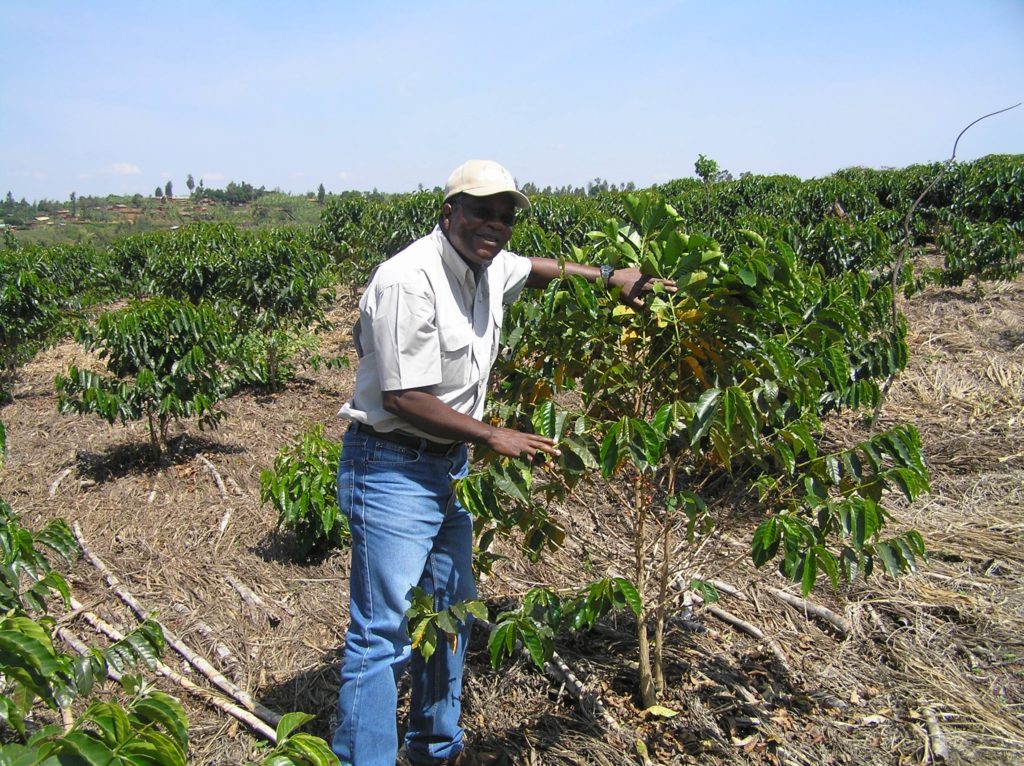
As a result, from Colombia to Zambia, CABI is supporting the efforts of coffee growers by sharing expertise on safely managing pests and diseases such as coffee berry borer in Colombia and promoting domestic coffee consumption and the local processing coffee industry in African countries.
With gender and youth a key focus of CABI’s work, CABI’s coffee projects in Colombia and across Africa also help to ensure more gender-equitable farming and support young farmers.
In Ethiopia and Rwanda, CABI helped cooperatives to increase coffee productivity and produce better quality coffee by purchasing and installing machinery, equipment and facilities for improved processing as well as providing training on coffee production, processing, quality, marketing and management of farmers association. The project team also helped to guarantee credit to coffee farmers by providing training on financial literacy, good cooperative governance to farmers and training to loan officers to help them understand the coffee value chain.
CABI has partnered with the Inter African Coffee Organisation (IACO) and ICO to build post Covid-19 resilience and protect Africa’s coffee producers. The partnership aims to alleviate market disruptions, food, nutrition and income security challenges facing millions of smallholder coffee farmers across 11 countries for an initial three-year period.
This joint venture by IACO, ICO and CABI adds to ongoing efforts under the Africa Coffee Facility (ACF) set up to promote domestic coffee consumption in the continent.
Building on years of providing solutions to coffee farmers, CABI began working with partners in seven African countries in 2019 to promote domestic coffee consumption and help to build the capacity of existing local coffee roasting enterprises. The $950 million ‘Africa Coffee Facility’ (ACF) was launched to help transform Africa’s coffee production.
The coffee berry borer is the most serious coffee pest worldwide, the pest damages coffee beans, destroying the taste and making the beans unprofitable – causing crop damage in excess of $US500 million, annually. Climate change is also enabling wider spread of this pest especially at higher altitudes.
In Colombia to enable safe and climate smart coffee production, CABI is partnering with Assimila, Cafexport and Climate Edge to produce an alert system that uses climatic data and remote sensing technology to give farmers advance warnings of coffee berry borer pest surges, allowing farmers time to access and apply biopesticide controls effectively.
Raising coffee mugs to International Coffee Day means acting to help ensure the future of coffee – for CABI that means helping to provide a healthy viable economy for the present and next generation of smallholder coffee farmers.
CABI books on coffee
Coffee pests, diseases and their Management
Main image
A Colombian coffee farmer sliding his hands over coffee beans. Credit: Pixabay, Those Coffee People
Related News & Blogs
On Earth Day, we take a look at climate change and agriculture
Climate change poses a threat to the livelihoods of smallholder farmers, exacerbating existing risks like extreme weather and the migration of crop pests and diseases that threaten food security. Already, the climate crisis is accelerating biodiversity…
22 April 2024

